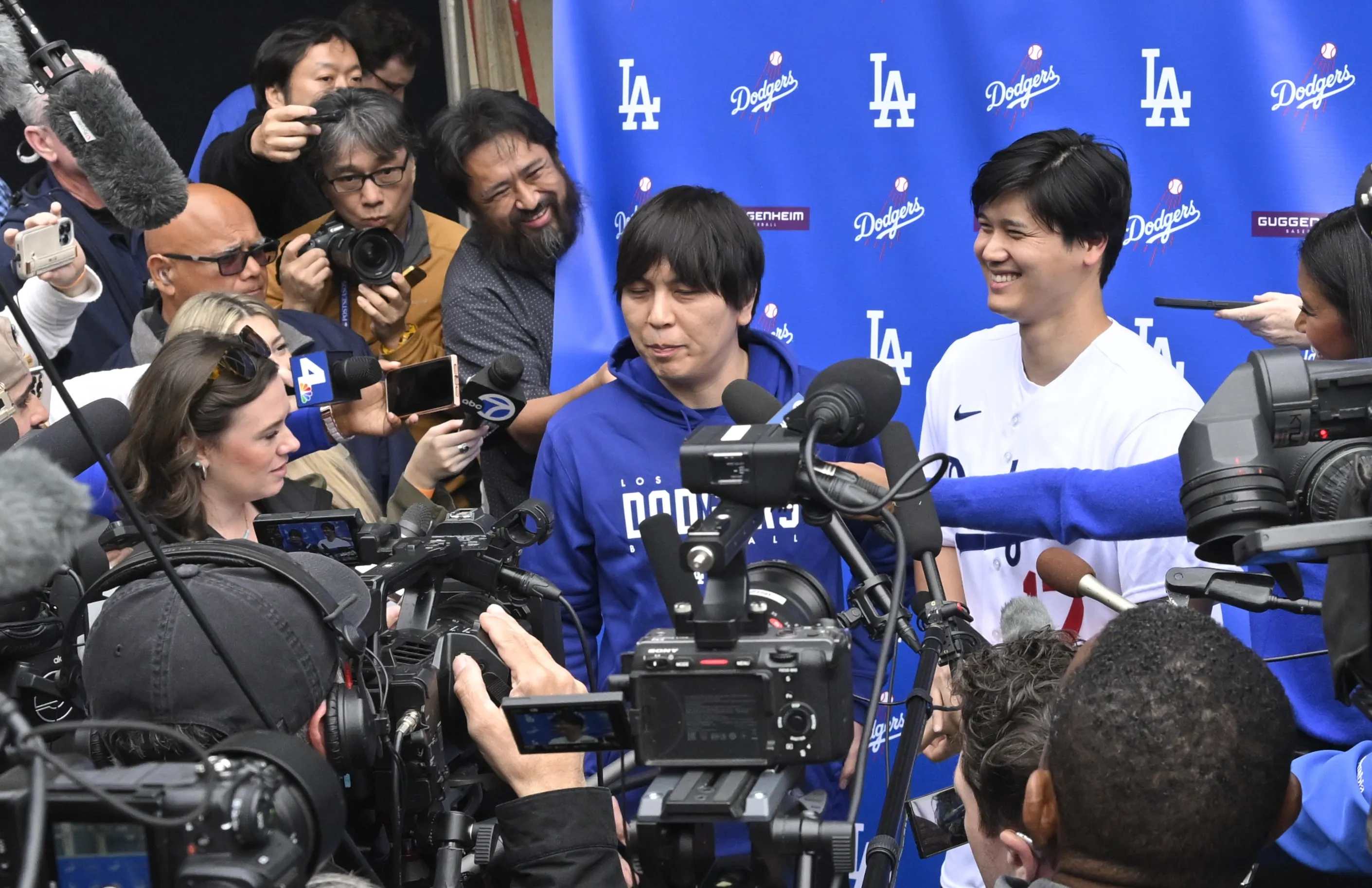The former interpreter for Los Angeles Dodgers star Shohei Ohtani pleaded not guilty Tuesday to bank and tax fraud, a formality ahead of a plea deal he’s negotiated with federal prosecutors in a wide-ranging sports betting case.
Prosecutors said Ippei Mizuhara allegedly stole nearly $17 million from Ohtani to pay off sports gambling debts during a yearslong scheme, at times impersonating the Japanese baseball player to bankers, and exploited their personal and professional relationship. Mizuhara signed a plea agreement that detailed the allegations on May 5, and prosecutors announced it several days later.
Mizuhara’s arraignment in federal court in Los Angeles took place Tuesday, where U.S. Magistrate Judge Jean P. Rosenbluth asked him to enter a plea to one count of bank fraud and one count of subscribing to a false tax return. The not guilty plea is a procedural step as the case continues, even though he has already agreed to a plea deal. He is expected to plead guilty at a later date.
"Once this case gets assigned to a district court judge, and that judge sets a change of plea hearing, this defendant will go before that judge sometime in the next couple of weeks and agree to plead guilty to the charges," Martin Estrada, the U.S. Attorney for the Central District of California, said.
Get top local stories in Southern California delivered to you every morning. Sign up for NBC LA's News Headlines newsletter.

There was no evidence Ohtani was involved in or aware of Mizuhara’s gambling, and the player is cooperating with investigators, authorities said.
Estrada said while his office was "pleased" that Mizuhara accepted his responsibility, he said the former interpreter would face "significant sentencing."
"It’s important, we believe, to send a message that you engage in this type of massive fraud, there must be consequences," Estrada said. "Through the investigation of his illegal gambling, that's how we learned the massive fraud perpetrated against Shohei Ohtani. If not for the investigation, who knows when Mr. Ohtani would have learned that his trusted confidant and de facto manager was in fact stealing millions of dollars from him."
The court appearance comes after Ohtani’s back tightness forced him to leave a Saturday night game against the San Diego Padres. While he sat out Sunday’s game as well as a precaution, he’s having an outstanding season, hitting 11 home runs with a National League-best .352 batting average going into Monday’s game against the San Francisco Giants.
Mizuhara’s plea agreement says he will be required to pay Ohtani restitution that could total nearly $17 million, as well as more than $1 million to the IRS. Those amounts could change prior to sentencing. The bank fraud charge carries a maximum of 30 years in federal prison, and the false tax return charge carries a sentence of up to three years in federal prison.
Mizuhara’s winning bets totaled over $142 million, which he deposited in his own bank account and not Ohtani’s. But his losing bets were around $183 million, a net loss of nearly $41 million. He did not wager on baseball.
He has been free on an unsecured $25,000 bond, colloquially known as a signature bond, meaning he did not have to put up any cash or collateral to be freed. If he violates the bond conditions — which include a requirement to undergo gambling addiction treatment — he will be on the hook for $25,000.
MLB rules prohibit players and team employees from wagering on baseball, even legally. MLB also bans betting on other sports with illegal or offshore bookmakers.
Ohtani has sought to focus on the field as the case winds through the courts. Hours after his ex-interpreter first appeared in court in April, he hit his 175th home run in MLB — tying Hideki Matsui for the most by a Japan-born player — during the Dodgers’ 8-7 loss to the San Diego Padres in 11 innings.



